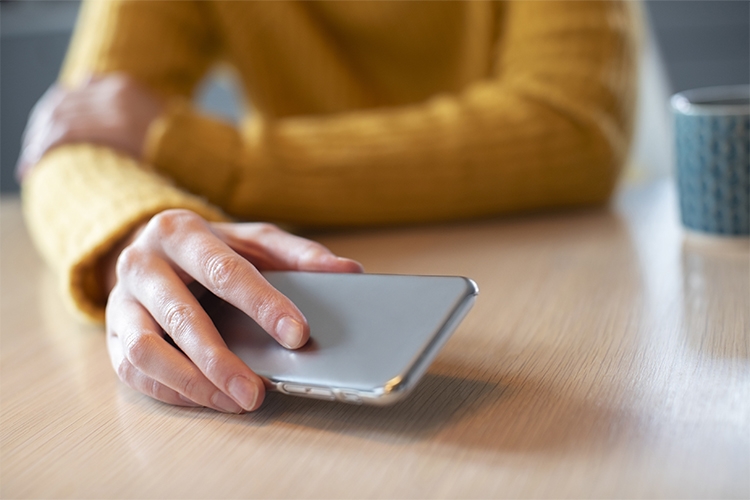By Dr. Paul Peak, vice president, clinical pharmacy
Every 10 to 12 minutes. That’s how often we, on average, reach out to grab our smartphones each day. Whether we do so consciously or subconsciously, it equates to between 80 and 110 daily touches of our devices. Smartphones have transformed the way we live, but few could have anticipated the degree to which we would become tethered to mobile technology.
As the holiday season approaches and we prepare to spend some quality time away from work with family and friends, it’s a prime opportunity to reconsider our relationship with technology and examine whether a “dopamine detox” can effectively help us in achieving healthier boundaries.
The challenge of unplugging
Partaking in a dopamine detox or “fast” is gaining popularity as a method for temporarily severing ties with our smartphones. The idea is to take a short break from the constant stimulation of notifications, texts and emails and the habit of endlessly scrolling on our devices. Unplugging from our smartphones can offer our brains a much-needed break; however, the name is a bit misleading, as our brains continue to produce dopamine, regardless of how we interact with technology.
Taking a break from technology is a lot easier said than done — and that is by design. Mobile technology is made to keep our rapt attention. In the book “Stolen Focus,” author Johann Hari describes how many of the apps and social media platforms we use every day were created by people well versed in human psychology and tactics of persuasion. (In fact, a lot of them took the same courses in the Persuasive Technology Lab at Stanford University.) The designers know how to keep us hooked and connected, regardless of our own intentions. For some users, the magnetic pull to their device is so strong that they must use a lockbox with a timer to endure any period of disconnection and get past their technology withdrawal.
Motivating factors
In my opinion, our efforts to intentionally disconnect are only as successful as our positive motivations. Instead of focusing on that from which we’re abstaining, it’s more powerful to focus on what we can gain from the time we are reclaiming.
Earlier this year, I tried my own dopamine detox for several days during a family vacation. I came prepared to disconnect from my phone so I could better focus on two things that help me recharge and relax: relationships and nature. My time away was one of the most refreshing and rejuvenating vacations I can recall.
Cultivating relationships
Checking for texts and emails may trigger a dopamine release in our brain, but other chemicals (such as endorphins and oxytocin) are released when we connect with other people. Humanity is a social species, and we’re wired for connection. Just as food provides our bodies with much needed nutrients, we also get “relational nutrients” when we spend focused time with the people we care about.
The Harvard Study of Adult Development, one of the longest longitudinal studies in U.S. history, found that living longer has little connection to wealth or status but rather is tied to the quality of our relationships. According to the study, the people who are happiest in their relationships at age 50 are the healthiest at age 80.
Communing with nature
Healthy relationships with others are essential, but we must also take time to invest in our relationship with ourselves. I’ve learned the importance of planning for solitude when I’m disconnecting from technology; when others in my family are on their own devices or there’s a moment of quiet in the house, that’s my time to get outdoors.
Being out in nature is a rejuvenating practice, even when it’s hot or cold outside. Studies have shown that spending time outdoors reduces our stress hormone levels and blood pressure. Researcher Dr. Rachel Hopman found that walking outside for 20 or more minutes at least three days a week can yield amazing benefits for mental health, as well as boost cognition and memory. Interestingly, she found that people don’t enjoy the same benefits from their walks outside when they bring their cellphones along!
As we get closer to the holidays and the end of the year, my hope is that we all find time in the weeks ahead to recharge with those we love and to do things that remind us of the good that can come from unplugging. I truly believe that if we can connect with the most important people and places in our lives during this season, we will find ourselves refreshed and ready for the opportunities that await us in 2023.

